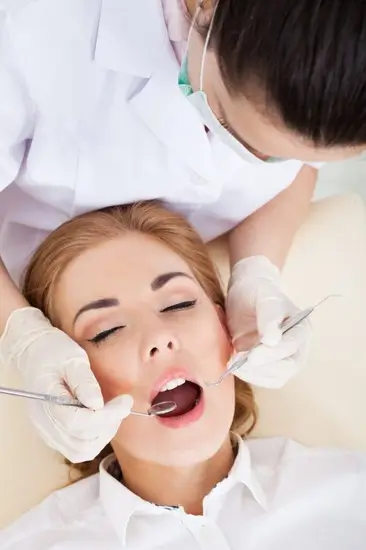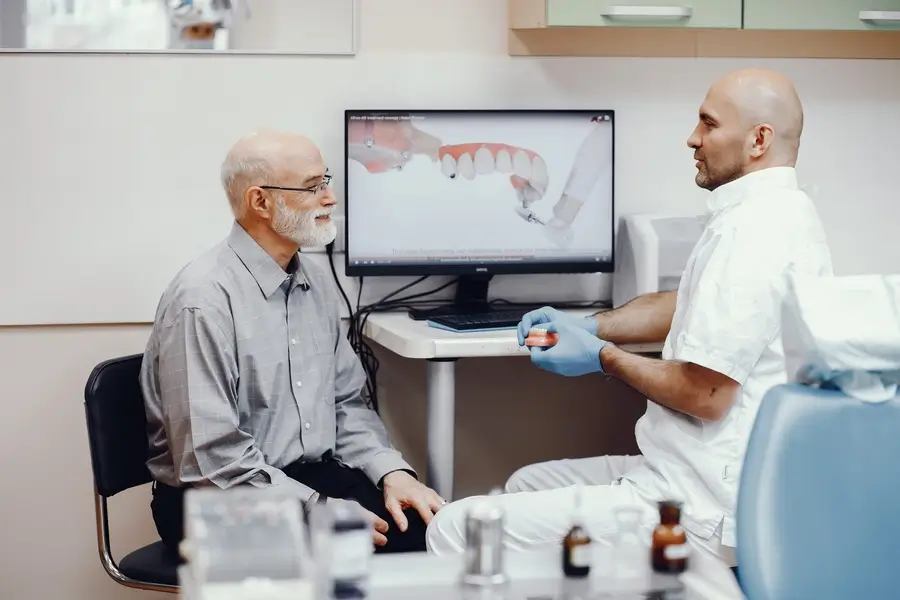At Kirkby Dental Practice, we understand that tooth extraction can be intimidating. After all, it's a dental procedure that involves tooth removal. However, in some cases, it's necessary to ensure oral health. Tooth extraction might be the best solution, whether due to severe decay, overcrowding, or other dental issues. But when is it necessary, and what should you expect during and after the procedure? Let's explore all these details so you feel informed and confident about your dental care choices.
When Is Tooth Extraction Necessary?
Tooth extraction is often deemed necessary when a tooth is beyond saving or when its removal benefits your oral health. Some of the most common reasons for needing a tooth extraction include:
Severe Tooth Decay or Damage Suppose a tooth is significantly decayed or harmed. Restoring it with fillings or other restorative treatments may not be possible. In such cases, extraction may be the best solution.
Overcrowding Sometimes, there isn't enough space in the mouth for all the teeth to align correctly. This can occur especially when wisdom teeth begin to emerge or if the teeth have grown too large for the jaw. In such situations, an extraction may be necessary to create more space for other teeth.
Gum Disease Severe gum disease (periodontitis) can cause teeth to become loose. In cases where infection or bone loss leads to looseness, extraction may be required to protect the surrounding teeth and gums from further damage.
Impacted Wisdom Teeth Wisdom teeth are the last molars in the late teens or early twenties. Due to insufficient space, they may become impacted, meaning they don't emerge properly. Impacted wisdom teeth can lead to pain, infection, and swelling, making removal necessary.
Infection or Abscess Suppose a tooth is infected and cannot be treated with antibiotics or a
root canal. Extraction might be required to prevent the infection from spreading to nearby tissues or other teeth.
Tooth Fracture When a tooth is fractured beyond repair, especially when it breaks beneath the gumline, the health of your surrounding teeth is.
What to Expect During a Tooth Extraction
Being prepared for the procedure can help reduce any nervousness or anxiety you may feel. Here's a general breakdown of what happens before, during, and after your tooth extraction:
Before the Procedure
Before your tooth extraction, your dentist at Kirkby Dental Practice will conduct a thorough examination, including X-rays, to understand the position of the tooth and the surrounding area. You will discuss your medical history, and the dentist will explain the process to ensure you're comfortable.
Anesthesia Options
Your dentist will offer anaesthesia options to ensure you don't feel pain during the extraction. This could include:
Local Anesthesia: The area surrounding the tooth will be anaesthetized, ensuring you don't experience any pain.
Sedation Dentistry: If you're anxious, sedation options like laughing gas or oral sedation may help you relax.
General Anesthesia: In more complex extractions, such as wisdom teeth removal, general anaesthesia may put you to sleep during the procedure.
During the Procedure
The dentist will gently extract the tooth using specialized instruments. The approach will depend on the complexity of the extraction, which can take a few minutes or longer. You may feel pressure, but you shouldn't experience pain due to the anaesthesia.
After the Procedure
After the extraction, your dentist will provide instructions for care at home. This may include:
Applying pressure to stop bleeding
Using ice packs to reduce swelling
Taking prescribed pain relief medications
Avoiding certain foods and drinks for the first few days
Tooth Extraction Recovery Tips
Recovery after tooth extraction is usually straightforward but requires care and patience. Here are some essential recovery tips:
Rest and Relax Rest is crucial after any extraction. Try to keep your head elevated while resting to reduce swelling.
Follow Pain Management Instructions Your dentist will likely recommend over-the-counter painkillers or prescribe stronger medications if necessary.
Maintain Oral Hygiene Maintaining a clean mouth is vital for avoiding infections, but be gentle around the extraction site. For a few days, avoid brushing the area directly.
Avoid Smoking and Alcohol Smoking and alcohol can impede healing and elevate the chances of infection. Avoid both during your recovery period.
Eat Soft Foods For the first few days after the extraction, stick to soft foods like soups, yoghurt, and mashed potatoes.
Attend Follow-up Appointments After the extraction, you may need a follow-up visit to ensure the site is healing properly.
Related Post: Importance of Regular Dental Check-ups
When to Call Your Dentist
While recovery is usually smooth, there are some signs that you may need to contact your dentist. These include:
Severe or persistent pain
Uncontrolled bleeding
Signs of infection (fever, increased swelling, redness, or discharge)
At Kirkby Dental Practice, we ensure you receive the best care and advice during your recovery.
Why Kirkby Dental Practice is the Best Option for Tooth Extraction
At Kirkby Dental Practice, we offer exceptional care for tooth extraction procedures. Here's why we are the best option for your dental care:
Expert Care from Skilled Professionals Our experienced dental team has years of expertise in tooth extractions, guaranteeing a secure and efficient procedure with minimal discomfort.
Cutting-Edge Technology for Precision We use state-of-the-art dental technology to provide accurate diagnoses and perform precise extractions, leading to a quicker and smoother recovery.
Personalized, Compassionate Care We understand your concerns and create personalized treatment plans tailored to your needs, ensuring you feel heard and cared for.
Comfortable, Stress-Free Environment Our clinic is designed to make you feel relaxed and at ease. We focus on your comfort and strive to provide a relaxing, stress-free experience from the start to the end of your procedure.
Pain-Free Options Tailored to You We offer a range of pain management options, such as local anaesthesia and sedation, to ensure your comfort during the extraction.
Comprehensive Aftercare and Support Post-extraction, we provide clear aftercare instructions and are always available for follow-up appointments to monitor your recovery and address concerns.
Choosing Kirkby Dental Practice for tooth extraction guarantees expert care and a smooth, comfortable experience. Please schedule an appointment today, and let us take care of your smile!
Conclusion
Tooth extraction can be an essential step towards restoring your oral health. Whether it's due to decay, overcrowding, or an impacted tooth, understanding the reasons for extraction and what to expect can help ease your worries. At Kirkby Dental Practice, we offer professional care at each stage, ensuring you feel at ease and well-informed. If you need a tooth extraction or have concerns about oral health, please get in touch with us today.
FAQs About Tooth Extraction
Tooth extraction is generally not painful because local anaesthesia or sedation is used during the procedure. You may feel some pressure, but no pain should be felt.
Recovery time varies, but most people feel better within 3-7 days. Full recovery, including gum tissue healing, can take several weeks.
If you're only receiving local anaesthesia, you should be able to drive home. However, if you have sedation, it's best to arrange for someone else to drive you home.
For 15 to 20 minutes, using an ice pack on your cheek can help manage swelling and aid in the healing process after the procedure.
Some extractions may require stitches, but many dissolve within a few weeks. Your dentist will inform you if stitches are necessary.
To prevent complications and ensure proper healing, it is best to avoid vigorous exercise for at least 3-5 days after the extraction.
Tooth extraction is generally considered a last resort after other treatment options, such as fillings or root canals, have been explored. However, extraction may be the best option in severe damage or infection cases for your health.












